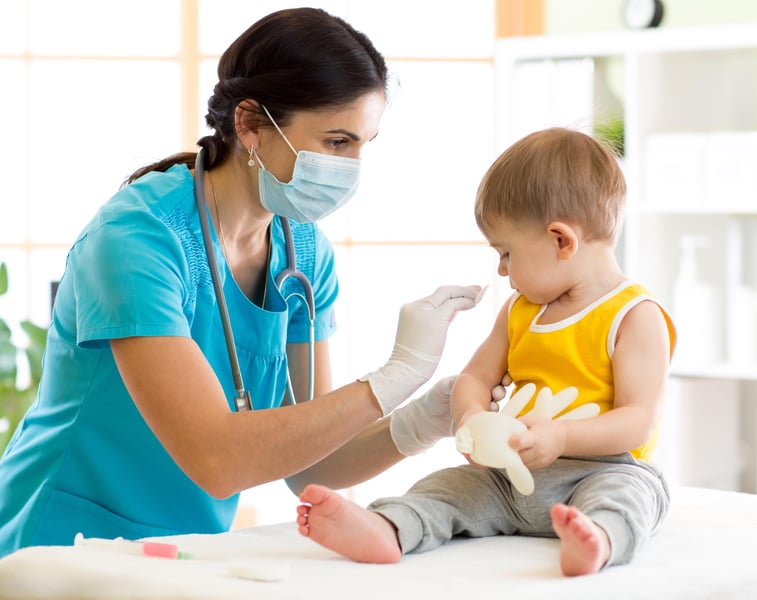Get Healthy!

- Cara Murez
- Posted June 27, 2022
Babies, Toddlers & the COVID Shot: An Expert Answers Your Questions
After a very long wait, babies, toddlers and preschoolers can now get COVID-19 shots.
Many parents may feel relief, but some may also have questions. Dr. Jessica Ericson, a pediatric infectious disease physician at Penn State Health Children's Hospital in Hershey, Pa., offers some answers to help parents weigh the benefits of vaccinating kids who are 6 months of age and older.
"The vaccine offers the huge benefit of protecting children against serious complications and death from COVID, and it has the future benefit of training a child's immune system to deal with COVID," Ericson said. "That's how we go from a pandemic to an endemic stage, where COVID becomes much less worrisome."
Ericson is also a mom to a 6-year-old, who is vaccinated, and a 3-year-old, who is now eligible. From a practical standpoint, Ericson noted, when her 3-year-old tested positive for COVID from a day care exposure, the result didn't keep her older child at home.
Yet, she's in the minority in choosing to get her 6-year-old immunized. Only about 30% of parents have chosen to get COVID shots for their 5- to 11-year-olds who became eligible for the Pfizer vaccine late last fall.
For many parents, one of the key questions is this: Why vaccinate when few children die from COVID and many have only mild symptoms.
"I think we get distracted by focusing on death rates," Ericson said. "There are a lot of ways a child's body and life can be disrupted if they get COVID."
She noted that younger kids are at higher risk of complications. For one thing, their breathing tubes are smaller and can more easily get clogged with phlegm.
"Younger children's immune systems aren't as robust either," Ericson added.
It's also not possible to know which kids will get very sick or who will get what's known as long COVID, risking long-term physical and mental health issues, she said.
Ericson emphasized that the COVID-19 vaccine is safe for babies and toddlers.
"Vaccines work very similarly regardless of age, and these vaccines have been given to millions of people over the past 18 months and are quite safe," she said.
The recent approval for young children was based on the outcome of clinical trials involving this age group, Ericson said.
For parents concerned about possible side effects, she said these will be similar to those after any vaccine. They include fever, sore arm and swollen lymph nodes. Young kids tend to have fewer vaccine side effects than older children, Ericson added.
Another consideration is that kids can also spread the virus if they pick it up at day care or school.
"Children definitely bring COVID home to the family and spread it when they go out," Ericson said. "The best way to disrupt that chain is vaccination. If we can stop even 50% of transmissions, our case numbers will plummet."
Although the vaccine is not 100% effective, even preventing 50% of infections and nearly 100% of severe illnesses makes it worthwhile, Ericson said.
Parents of these youngest children have a choice to make that's not available to parents of older kids: There are two approved vaccines for this age group, one from Pfizer and one from Moderna. Which to choose is a matter of personal preference, Ericson said.
For kids under age 5, Pfizer is a three-shot regimen. The first two shots are given three weeks apart, and the last, at least two months later.
Moderna is a two-shot regimen. The shots are given about four weeks apart for kids under 6. Those who are immune-compromised can get a third dose at least a month after their second.
"Some parents may prioritize gaining immunity quicker and choose Moderna, which provides protection after six weeks, versus about 12 weeks for Pfizer," Ericson said. "Other parents will choose Pfizer because side effects are fewer or they feel more comfortable since Pfizer vaccines are already being used in children as young as 5."
More information
The U.S. Centers for Disease Control and Prevention has more about COVID-19 vaccines.
SOURCE: Penn State Health, news release, June 23, 2022







